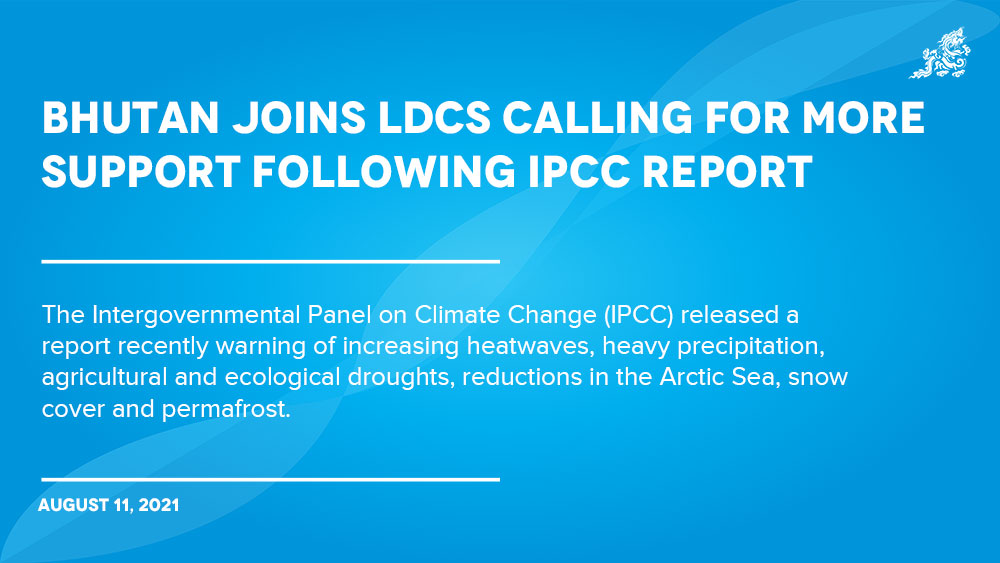Chhimi Dema
The Intergovernmental Panel on Climate Change (IPCC) released a report recently warning of increasing heatwaves, heavy precipitation, agricultural and ecological droughts, reductions in the Arctic Sea, snow cover and permafrost.
It states that it was “unequivocal” that human activities are to be blamed for increasing temperatures and that the 1.5ºC global temperature limit will be exceeded during the 21st century unless reductions in emissions occur in the coming decades.
“Many changes due to past and future greenhouse gas emissions are irreversible for centuries to millennia, especially changes in the ocean, ice sheets and global sea level,” the report states.
Following the IPCC’s report, the Least Developed Countries (LDC) Group, comprising 46 countries including Bhutan, called for more “support to developing countries who are disproportionately impacted by climate change.”
LDC chairperson and National Environment Commission Secretary, Sonam P Wangdi, said that the report comes as yet another stark warning.
“The science is even clearer: global greenhouse gas emissions continue to rise, the climate crisis is worsening and the impacts will be devastating,” he said.
The IPCC report shows that continued global warming is projected to intensify the global water cycle, including its variability, global monsoon precipitation and the severity of wet and dry events.
Sonam P Wangdi said: “We need to see developed countries and large emitters take the lead and slash emissions, and we need the assurance that this will happen urgently.”
He said that the countries were already experiencing the devastating impacts of the climate crisis.
“In the last few weeks alone, the world has seen unprecedented and lethal heatwaves and floods. These will only get worse–more intense and more frequent–as emissions continue to rise.”
The secretary said that the UN Climate Change Conference of the Parties (COP26) must submit more ambitious Nationally Determined Contributions (NDC) that close the emissions gap.
COP26 will be held from October 31 to November 12 this year in Glasgow. COP is the decision-making body responsible for monitoring and reviewing the implementation of the United Nations Framework Convention on Climate Change.
Sonam P Wangdi said: “Climate change is hurting our countries and communities worst. It’s already late but by COP26, developed countries must deliver their decade-old commitment to provide USD 100B annually and keep on increasing it as per the needs of countries facing climate impacts.”
He added that resubmitting the same NDC is not enough, stronger emission reduction targets were needed for 2030. “We really are running out of time.”
Edited by Tshering Palden


